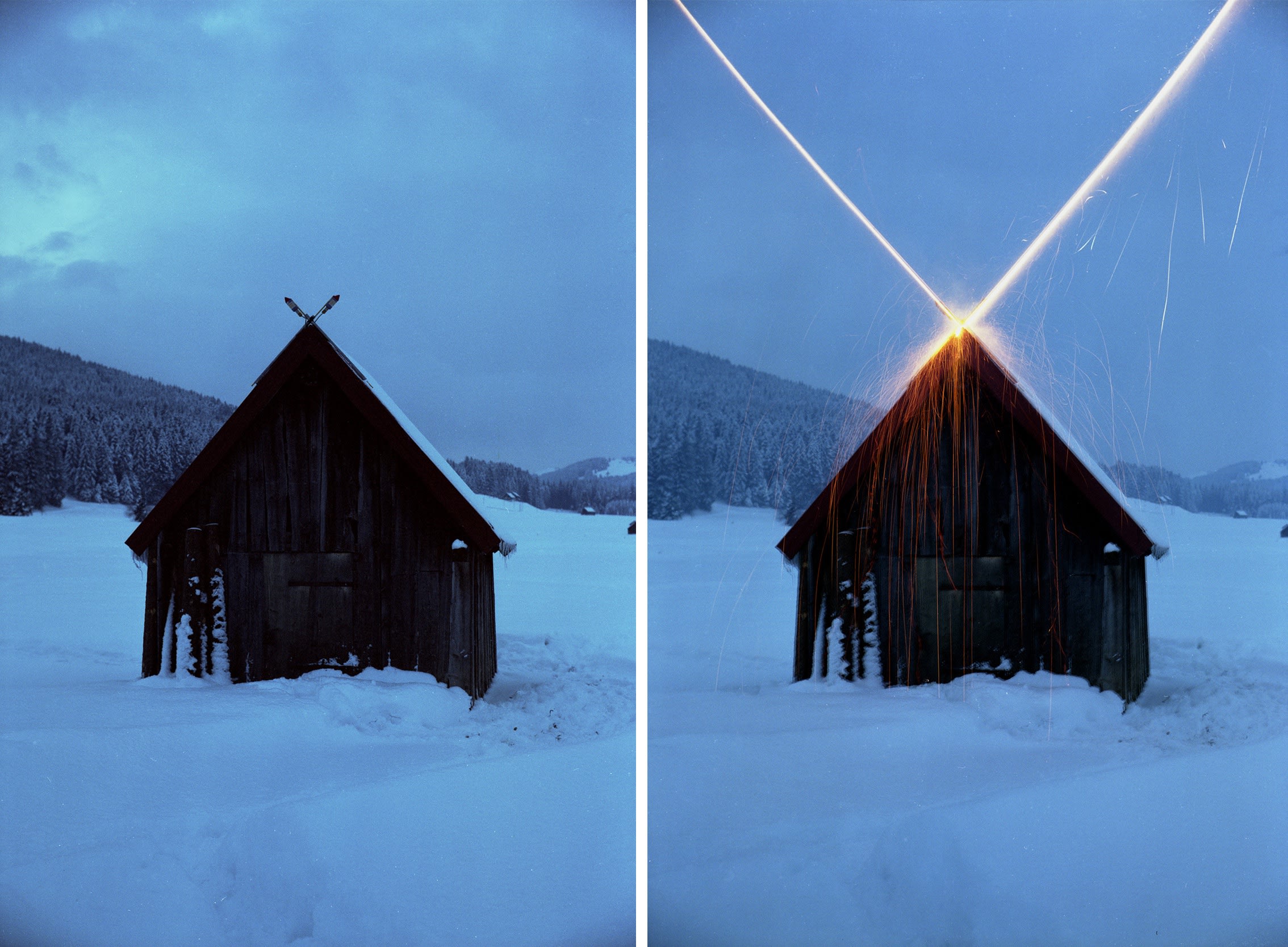Marcel van Eeden: Stolen Pictures
23 September ~ 20 November, 2021
Clint Roenisch Gallery is pleased to present an exhibition of recent large charcoal works on canvas by Marcel van Eeden (b. The Hague, 1965).
Marcel van Eeden is widely considered one of the most important Dutch artists working today. Since the early nineties he has obsessively concerned himself with the act of drawing. Specifically on the rendering and reordering of the vast historical period that stems roughly from the birth of photography to the definite end-limit of 22 November 1965, the day of his birth. Using source material only found within these parameters, van Eeden relentlessly draws his pre-history to record the experience - the light, the architecture, the travel, the people, the cities, the familiar, the foreign, the intrigue, the art, the violence, literally everything - of a past he could not know. The artist has immersed himself in this encyclopedic swath of material, drawing nearly every day for twenty-five years and counting. Aoife Rosenmeyer, writing in Frieze, remarked that "his monumental project reassures and destabilizes in equal measure - perhaps this is as close to an authentic experience of history as drawing can offer." Initially van Eeden drew only small, single images: street scenes, art history, trains in their stations, explosions, fights, pastoral landscapes, signs and texts, patterns and abstractions, figures, anything that caught his omnivorous eye. Later on the drawings began to move away from individual scenes and developed into long series of complex tableaux using multiple techniques with linked narrative content and timelines. Over the years van Eeden's magnum opus has grown to slowly suggest a vast, global web of noirish intrigue, acted out across several continents with a rotating cast of mysterious figures. Steven Henry Madoff, in an ArtForum review, noted that "Nabokov, in his autobiography, Speak, Memory, wrote: 'I do not believe in time.' It would seem that van Eeden does not either. But this is only to say that he, like Nabokov, is evidently so fascinated by the kaleidoscopic eventfulness of life and how each of us is changed over its course that he exaggerates time's brilliant surface, which shines like the mirrored convexity of a bubble, so that all the images that pass over it are at once super-real, suspect, and achingly fragile."
Van Eeden's recent work tells the story of a robbery of masterpieces from the Rijksmuseum in Amsterdam. The story is an extension of van Eeden's project The Rijnbar. A sinister figure is looking for the ultimate source of energy, a life force to gain great power with. Van Eeden is inspired by the work Die Welt als Wille und Vorstellung / The World As Will And Representation (1819) by the German philosopher Arthur Schopenhauer (1788-1860). Initially, in Marcel's hands, the figure wants to extract this power, or will, from living organisms, but when it turns out that the cacti of the Hortus Botanicus in Amsterdam are not sufficient, he turns to the masterpieces of the Rijksmuseum. The extraction of Will from the paintings of Rembrandt and Van Ruisdael would create the ultimate source of the energy that he is looking for. The related drawings in the exhibition convey fragments of an account of the theft in Amsterdam.
Marcel van Eeden studied at the Royal Academy of Visual Arts in The Hague (1989-1993). He lives and works in Zürich, Karlsruhe and The Hague. His work has been shown in the Albertina (Vienna), Drawing Room (London), GEM (The Hague), Martin-Gropius-Bau (Berlin), Stedelijk Museum (Schiedam), Studio Sales di Norberto Ruggeri (Rome), among others. His work is included in several collections including the Centre Pompidou (Paris), Kunsthalle St. Gallen (Gallen), Louisiana Museum of Modern Art (Copenhagen), MoMA (New York), Stedelijk Museum (Amsterdam), Akzo Nobel Art Foundation and De Nederlandsche Bank (Amsterdam) among many others. Van Eeden is represented by Barbara Seiler (Zürich), Clint Roenisch (Toronto), Galeri Bo Bjerggaard (Copenhagen), Georg Kargl (Vienna), In Situ / Fabienne Leclerc (Paris), Sprüth Magers (Berlin / London) and Martin van Zomeren (Amsterdam).


